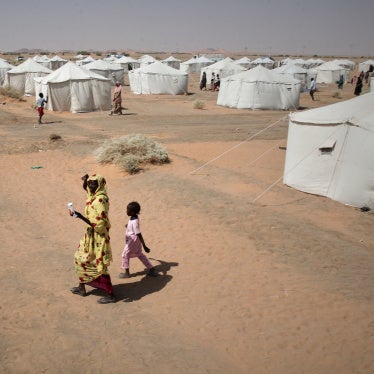Human Rights Watch and the International Federation of Human Rights Leagues (FIDH) strongly condemn the decision of the Rwandan Council of Ministers to execute twenty-three persons sentenced to death for the crime of genocide. According to the Rwandan national radio, the executions will be carried out on April 24 at 10 a.m., in order "to serve as a lesson" to Rwandans. The executions will take place at five places that became infamous for massacres carried out during the 1994 genocide.
Human Rights Watch and FIDH forcefully condemned the genocide and crimes against humanity carried out in 1994. The two international human rights organizations insist on the necessity of trying persons accused of genocide and of severely punishing those found guilty of these crimes. Researchers for Human Rights Watch and FIDH have worked for the last three years to gather and publish evidence that contributes to establishing the truth about the genocide and to help ensure justice for the victims in national courts as well as at the International Criminal Tribunal for Rwanda.
In 1993, Human Rights Watch and FIDH participated in an international commission of inquiry into human rights abuses in Rwanda and denounced ethnically-based killings already being committed at that time. They warned leaders of the international community to act to prevent the 1994 genocide, but their appeals were unheeded.
Human Rights Watch and FIDH oppose the death penalty on principle in all countries and for all crimes. Any criminal system may make errors, leading to miscarriages of justice which are irreparable if a capital sentence is carried out. The likelihood of error is particularly great in the case of Rwanda where the justice system is just beginning to recover from the devastation caused by the genocide.
Human Rights Watch and FIDH applaud the efforts of the Rwandan government to bring to justice those accused of genocide, but they deplore the summary nature of some of the trials, which do nothing to reveal the truth about the genocide or to contribute to establishing the rule of law. Some persons have been condemned to death, for example, without having had the opportunity to benefit from legal counsel and others have been condemned after defense witnesses have been so intimidated that they have refused to testify. Carrying out death sentences in such cases ill serves the interests of justice.








